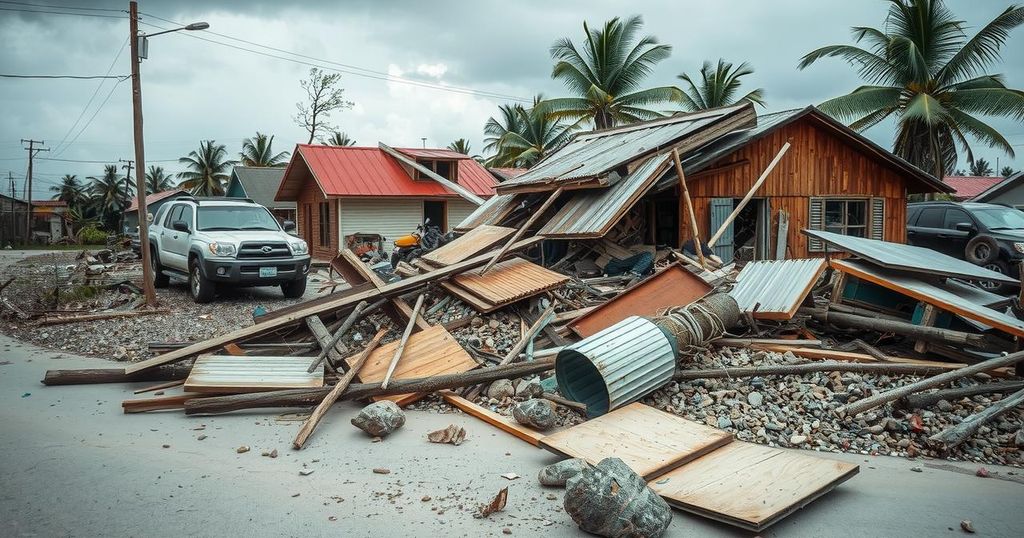Cyclone Chido: A Devastating Force Claims Lives and Displaces Thousands in Mozambique
Cyclone Chido has resulted in at least 34 fatalities and significant destruction in Mozambique. Initial reports indicate widespread damage, particularly in Nampula province, and over 175,000 individuals affected. The storm has prompted urgent humanitarian appeals as communities face ongoing risks from heavy rains and continued vigilance is needed. Relief efforts are critical as the cyclone’s impact extends to the region beyond Mozambique.
Cyclone Chido has devastated Mozambique, claiming at least 34 lives and uprooting thousands of residents, as confirmed by the National Institute of Risk and Disaster Management (INGD). The cyclone wreaked havoc, particularly in the Nampula province, where initial casualties were reported. Reports indicate that heavy rainfall, with wind speeds reaching 260 kilometers per hour, has caused severe infrastructure damage, including the destruction of nearly 23,600 homes and approximately 170 fishing boats. Relief efforts are urgently needed as the cyclone transitions to a severe storm after making landfall on Sunday in the Cabo Delgado province. Despite the storm diminishing in intensity, continued vigilance and precautionary measures are crucial as Cyclone Chido remains active in the region, with 175,000 individuals affected.
In response to the disaster, Luisa Meque, President of INGD, has issued appeals for aid, emphasizing the significance of awareness and prompt assistance to affected communities. Furthermore, UNICEF reported the risks faced by children and families in the wake of the cyclone, highlighting issues of safety, access to resources, and emotional well-being. Chido’s impact extends beyond Mozambique as the cyclone moved through Malawi and is anticipated to deteriorate further near Zimbabwe, emphasizing the need for regional disaster preparation and response strategies.
Cyclone Chido represents a major humanitarian crisis for Mozambique, a country already grappling with economic and developmental challenges. Situated in a region frequently affected by severe weather events, such as cyclones, Mozambique’s infrastructure is often ill-equipped to handle such natural disasters, particularly in vulnerable areas experiencing ongoing conflict. The cyclone’s arrival follows its destructive path through nearby regions, further complicating relief and recovery efforts. Understanding the geographical and socio-economic context is essential when assessing the cyclone’s impact and the necessity for immediate and effective humanitarian assistance.
In summary, Cyclone Chido has resulted in significant loss of life and extensive destruction in Mozambique, particularly affecting vulnerable communities. The cyclone has intensified calls for urgent humanitarian aid and careful community response. As relief operations are initiated, it is vital to monitor the situation and address the immediate needs of those displaced, particularly the welfare of children who are disproportionately impacted. Coordinated efforts from national and international agencies will be crucial to facilitate recovery and restore normalcy in the affected areas.
Original Source: www.rfi.fr




Post Comment